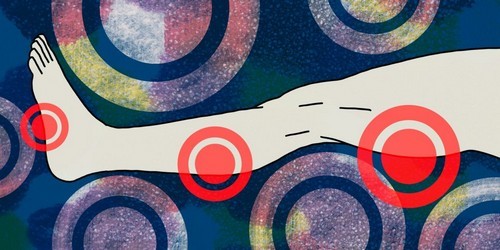Autism is a developmental disorder in which reduced or in some way distorted a person’s ability to interact with the social environment, that is, with the people around him.
This leads to the fact that a person cannot learn in a social environment and get a lot of important information that can make all the other children of the same age.
The usual small children are literally immersed in a social environment – they are primarily attracted to other people who are constantly watching their reactions, trying to interact with them, and in autism these skills broken.
What is autism? Are there different types of autism?
This leads to various consequences for mental development, one of the most striking examples of such effects – speech disturbance when the child does not understand how to use speech to interact with other people. All people with autistic disorders are some kind of disorders of speech communication. This is particularly noticeable in young children, the acquisition of speech is delayed, he is much slower.
Adopted in Russia classification includes several diagnoses that relate to autism spectrum disorders (ASD) – infantile autism, atypical autism, Asperger’s syndrome. The criteria for these categories are quite blurred.
Atypical autism and Asperger syndrome can be very similar, and two different doctor can put two different diagnoses to the same person. Moreover, during life the diagnosis may change, for example, the first two years of life the clinical manifestations may correspond to atypical autism, the next five years – children’s autism and then Asperger’s syndrome. Because human development occurs, and it’s changing, symptoms can also vary.
The American psychiatric Association is now generally abandoned this division, in the US there is only one diagnosis of autism spectrum disorder (ASD), which includes all forms of autism”.

Autism is a disease?
Elena Grigorenko, doctor of psychological Sciences, Professor at Yale and Houston universities, head of the laboratory of interdisciplinary studies, early childhood St. Petersburg state University, head of the expert Council of the Foundation out. “Autism spectrum disorders are part of a large diagnostic group, which we call “developmental disorders”. They occur at any stage of one’s life and then for life changing, so this category is not static, it is impossible to enter, to be in a state of disease, and then to recover.
The analogy with the flu or a sore throat is irrelevant here. In this state the person is throughout life, and since life itself is by definition dynamic, it is also changing. Thus, autism is not a disease but a developmental disorder.
Why is there autism?
Ekaterina Pomerantseva, a geneticist, candidate of biological Sciences head of the laboratory of Genetico. “Autism is a “tricky” diagnosis, in fact it is a group of different States, that is, the so-called “umbrella diagnosis”. Within this group there are forms that are related to mutations in the genes. This so-called genetic forms of autism, and quite a lot of them.
Overall, genetics are somehow connected approximately 70% of cases. However, not all the 70% – it is some syndromic forms associated with a specific mutation, it can be some hereditary predisposition, there may be cases that depend on combinations of genes and external environment. Modern methods of genetic testing allow to identify the cause of autism in about 25% of children.
Also already there are many environmental factors that affect the risk of autism. More such factors are being studied right now, for example, activation of the maternal immune system during pregnancy. Most likely, there are factors, which has no thought, but over time they too will find. So here the situation is developing quite dynamically. Some time ago, for example, someone else thought it possible to discuss the risks associated with the vaccination, but now this is ridiculous to say that vaccination does not cause autism, it is already clear”.
How many people with autism in the world today? Can you talk about the autism epidemic?
Professor Morin Durkin, doctor of science in epidemiology and a Professor of public health and Pediatrics at the University of Wisconsin. “At the moment we have no data on the prevalence of autism in most countries of the world. However, this does not mean that in these countries, cases of autism less. Basically we have data on the prevalence of autism in Western Europe, the USA and several Asian countries. So, in the United States, according to the Center for disease control and prevention, autism is 1 in 68 children.
Yes you can talk about the epidemic of autism. The epidemic means that the frequency of any disease or other condition of the population is higher than expected or higher than normal and rising. The last twenty years this has been true for autism.”
Do all people with autism the same?
Donna Williams, an autistic woman, writer, artist and consultant on autism issues. In Russia were published her autobiographical book “Nobody nowhere”. “No two people with autism with the same person, or that is their “autism”. Autism is a “fruit salad”, and the combination of ingredients in this salad can be very different depending on the specific person. They are all so different and each have their strengths. It is important to remember that people with autism – it is still just people, but children with autism is still just a child”.
Dangerous people with autism? Are they able to sympathy?
Emily Willingham, mom of a child with autism, doctor of biology, researcher and popularizer of science. “Planned, social violence is not typical for autism. Moreover, autistic people are much more likely to be victims of violence than use violence on others. Autistic people find it hard to automatically put yourself in the other person in a given situation and intuitively understand, what now feels like a different person.
However, if the emotion is expressed clearly and directly, nothing prevents them to understand what the other person is feeling. My experience suggests that once an autistic person understands other people’s emotions, then he is experiencing unconditional empathy. Usually, their emotions are very intense.”
Do people want RACES with friends, socializing?
Dr. Elizabeth Laugeson, a clinical psychologist, author of numerous studies on socialization in autism and developer of one of the approaches to the development of social skills in adolescents with autism.
“In our program the teaching of social skills, we learned that, although young people with autism don’t always Express the need for friends in words, the vast majority of them need friendship and fellowship. The only problem is that they don’t know how to do it. In fact, numerous studies have shown that people with autism suffer from is just incredible loneliness. Because of the social isolation they often develop depression and anxiety disorders”.
Is it possible to outgrow autism?
Dean Gassner – mother of an adult son with autism, social activist and social worker, which specializiruetsya on supporting Teens and adults with autism and other developmental disorders. Most Gassner was diagnosed with Asperger’s syndrome – a form of autism without intellectual disabilities and speech.
“There is a myth that autistic people are somehow magically outgrow your autism. I think it is very important to understand – to develop autism is impossible! Myself, I usually say: I did not develop autism, I have grown in him. I grew up and began to better understand myself as a person with autism learned to solve related problems. My success in this, and not that I’m trying to be someone I can not be”.
Is there an effective treatment in the case of autism?
Dr. Bryan king, Professor Department of psychiatry and behavioral Sciences University of Washington, Director of the Children’s center for autism in Seattle, one of the world’s leading experts in the field of autism and other developmental disabilities. “Yes, and in recent years we are getting more and more evidence of the effectiveness of therapy. In the first place, it with kids the use of the techniques based on applied behavior analysis. To start helping the child with autism clear with them.
Generally, it is possible to recommend to parents to not think about autism in General, and about specific unique child, about the specific difficulties that he has in this particular moment. What skills he lacks in comparison with their peers. For example, many children with autism do not use speech. With such a child must first work on the development of communication. There are effective behavioral techniques that are aimed at the development of speech.
A child who already speaks well such methods will not work. It is necessary to develop more complex social skills. Each child or adult with autism has unique needs. So the purpose of the family is not autism as such, and the answer to the question: “what problems need to focus in the first place?”
Is it possible to treat autism, some medications or procedures?
Dr. Natalie Danica Buckets, child and adolescent psychiatrist, expert non-profit organizations on issues of children’s mental health “Child Mind Institute”. “First of all, interventions for autism – behavioral. As yet, there are approved drugs or procedures that directly affect the symptoms of autism. The role of medication treatment in autism, to put it mildly, modest. To drugs in autism is resorted to only when other methods have failed. The medications impact on autism itself and reduce a particular symptom, for example, increased irritability or hyperactivity”.
Is it possible to cure autism completely? What is the future of a child with autism?
Laura Dilley, an expert on the diagnosis and early intervention for children with autism, psychologist, member of the Board of Directors Psychological Association of Georgia, specialist of the Center for autism Marcus (USA). “Parents often ask me about it. And I have to answer: “I don’t know. I wish I could answer that, but I don’t know.” We know that 5-10% of children who received early diagnosis and early psychological and pedagogical care, no longer meet the diagnostic criteria for autism when they become adults.
Of course, they can still be some features or difficulties associated with the spectrum of autism, but they are relatively minor. Much depends on early diagnostics and assistance. Primarily, such assistance should be directed to the so-called functional communication – the ability to communicate his wants and needs to others, and self and other skills for independent living”.




This reminds me of the other info I was seeing earlier